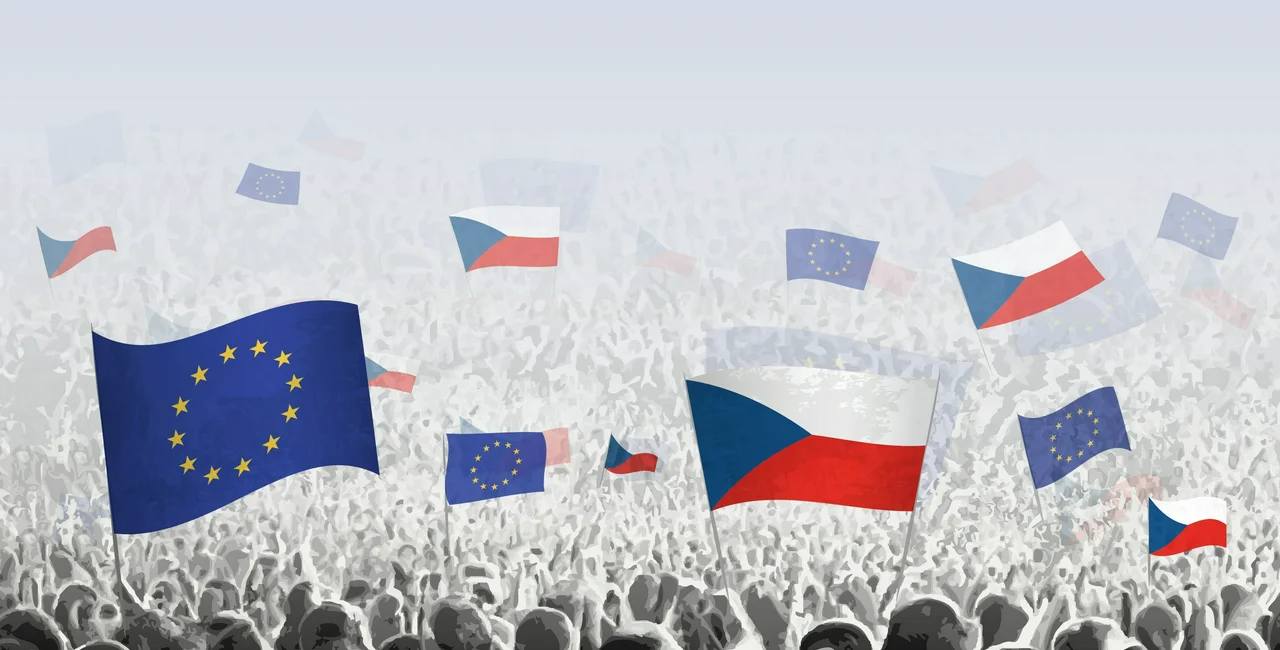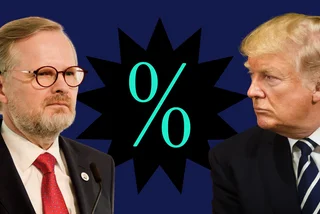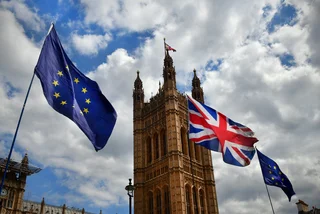Stored in a wooden box deep inside Prague’s Foreign Ministry, Czechia’s EU accession treaty is more than a 15-kilo-heavy stack of paper—it’s the symbol of a historic pivot. On May 1, 2004, after decades of communist isolation and years of political reform, the country officially joined the EU.
“In the 1990s, the entire nation was still concerned about anchoring ourselves securely in Western Europe. We did not consider it finished yet,” recalls Karel Kühnl, foreign minister in the lead-up to accession. “That was the spirit of the time.”
Two decades later, as the country marks 21 years in the bloc, Czechia is wealthier, more integrated—and more conflicted—about its place in Europe. Here's what EU membership has meant for daily life, from paychecks to politics.

From “Europe-lite” to fully integrated
In 2004, Czechia's GDP per capita was approximately CZK 260,000. By 2023, it had risen to about CZK 698,706, reflecting significant economic growth over two decades. Trade with the EU has also intensified, with 69 percent of Czech exports directed to EU countries in 2023.
The average gross monthly wage increased from CZK 17,738 in the third quarter of 2004 to CZK 46,165 by the end of 2024. Additionally, the minimum wage rose from CZK 6,700 per month in January 2004 to CZK 20,800 per month by 2025.
But it’s not just about bigger paychecks. Czechia has become a magnet for foreign workers and companies. In 2005, there were just over 100,000 EU citizens working here. Now, it's closer to half a million. More than a million foreigners in total now live in Czechia—a significant number for a country of 10.5 million.
For expats, this shift has meant more English-speaking offices, more international school options, and a stronger infrastructure to support relocation.
Erasmus, freedom of movement, and why your Czech colleagues studied in Spain
More than 400,000 Czechs have studied abroad since joining the EU, and Czech universities have welcomed nearly as many foreign students in return. Freedom of movement has given a whole generation of young Czechs access to study and work experiences across Europe that were once unimaginable.
It’s also given expats the ability to move easily between jobs and countries—something that’s helped position Czechia, especially Prague and Brno, as key hubs for remote workers, startups, and multilingual service centers.
The roads are smoother, and the airports busier
One of the more tangible benefits of EU membership? Infrastructure. Since 2004, Czechia has received nearly CZK 2 trillion from the EU—more than double what it has contributed. Those funds have helped build roads, update railways, modernize hospitals, and improve everything from sewage systems to broadband.
Love that fast train to Vienna? Enjoying the new bypass outside Brno? You can thank the EU’s cohesion funds.
Czechia and Brussels: Not always on the same page
For all the gains, Czechia’s relationship with Brussels hasn’t always been a lovefest. Successive governments have balked at refugee quotas and resisted the EU Green Deal over fears about its impact on the Czech auto industry. Debates over euro adoption simmer quietly (or loudly, during elections). And some politicians still like to blame the EU for…just about everything.

Remember the “bendy bananas” myth? While that particular EU regulation has been wildly exaggerated, it captured a broader sentiment of skepticism that still lingers in parts of Czech society—especially when it comes to rules seen as coming from “outside.”
What does all this mean for expats?
Whether you’re here for the long haul or just passing through, Czechia’s place in the EU shapes your everyday life more than you might realize. It’s why your residence permit works across borders, why your work contract might come with EU-mandated protections, and why you can find French cheese, Polish strawberries, and Portuguese wine all in the same supermarket aisle.
It’s also why the Czech Republic—once viewed as a post-Communist “emerging” economy—now sits at the same table as Germany, France, and the Netherlands when shaping the future of the continent.
Two decades in, EU membership has helped Czechia become more international, more prosperous, and—arguably—more stable.
There are still debates to be had about integration, the euro, and who holds the power in Brussels. But as Czechia continues into its third decade in the bloc, the greatest benefit of joining the EU, according to Kühnl, is the fact that the country has "learned to play by the rules."












 Reading time: 3 minutes
Reading time: 3 minutes 


































